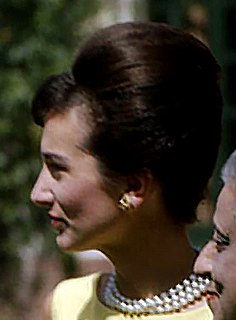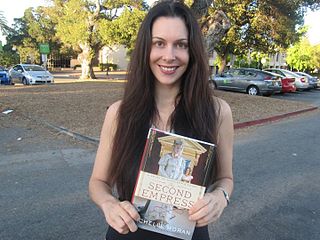A Quote by Erik Larson
In Washington, we had a grieving President Wilson, very, very much a lonely, grieving man. He had lost his wife of many years in August 1914 at about the same time the war broke out in Europe.
Related Quotes
Woodrow Wilson is reported to have told a Princeton colleague, shortly after the 1912 election, "It would be an irony of fate if my administration had to deal chiefly with foreign problems, for all my preparation has been in domestic matters." In the event, Wilson's early months were marked by substantial domestic legislative accomplishment. Unfortunately, after Europe plunged into the Great War in August 1914, Wilson's leadership was uncertain.
Small things such as this have saved me: how much I love my mother — even after all these years. How powerfully I carry her within me. My grief is tremendous but my love is bigger. So is yours. You are not grieving your son’s death because his death was ugly and unfair. You’re grieving it because you loved him truly. The beauty in that is greater than the bitterness of his death.
Hank Paulson, obviously, had spent his career on Wall Street, had a deep knowledge of the Street, and also was a very forceful personality, had a very good relationship with the president, and was in a very different place, for example, than Ben Bernanke, who is an academic, quiet guy: spent most of his time thinking about monetary policy.
Woodrow Wilson was the president of the United States in 1920, and he was made a fool of - his wife almost divorced him - because he wouldn't support women's suffrage. He was president during World War I, but I look back upon him as a coward. Because he knew the right thing to do - the right of women to vote was an idea whose time had come a long time before then, when a lot of women were put into prison or persecuted because they fought for it.

































